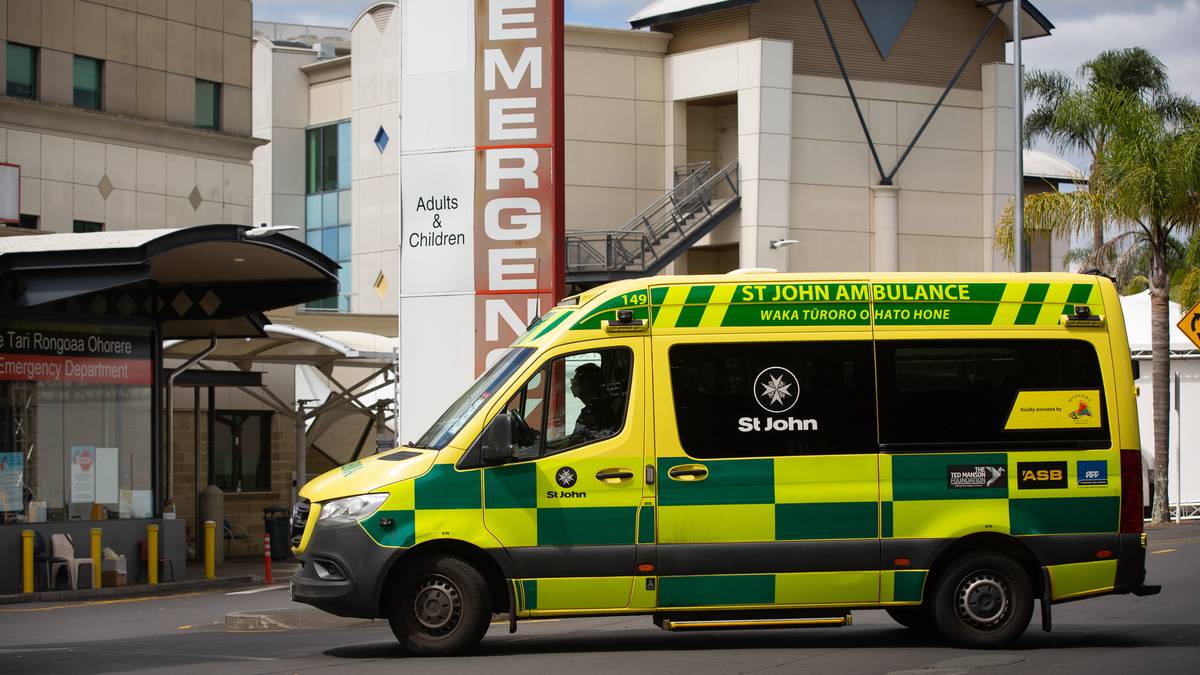Could Auckland’s controversial parking plan be scrapped? Why the Greens might not get a new co-leader and what New Zealand’s doing to keep foot and mouth out in the latest New Zealand Herald headlines. Video / NZ Herald
There are 9256 new community cases of Covid-19 today and a further 38 people have died with the virus.
There are 822 people in hospital with Covid, including 24 in intensive care. They are in Northland (19), Waitematā (99), Counties Manukau (60), Auckland (89), Waikato (100), Bay of Plenty (41), Lakes (12), Hawke’s Bay (35), MidCentral (49), Whanganui (14), Taranaki (14), Tairāwhiti (three), Wairarapa (15), Capital and Coast (28), Hutt Valley (27), Nelson Marlborough (14), Canterbury (149), West Coast (one), South Canterbury (12) and the Southern region (41).
The average age of people in hospital with Covid is 64.
Of the 38 people whose deaths were reported today, eight were from the Auckland region, one was from Waikato, two were from Bay of Plenty, five were from Lakes, one was from Tairawhiti, two were from MidCentral, two were from Whanganui, two were from Wellington, two were from Nelson Marlborough, four were from Canterbury, one was from South Canterbury, and eight were from the Southern region.
Three were in their 50s, one was in their 60s, five were in their 70s, 18 were in their 80s and 11 were aged over 90. Of these people, 19 were women and 19 were men.
The seven-day rolling average of community cases today is 8335, while this time last week it was 9534.
Yesterday there were 6910 new cases in the community and a further 16 deaths were reported.
There were 836 people in hospital with the virus, including 27 in ICU – an increase of more than 100 compared to Monday’s 720 and up by more than 50 per cent compared to 322 on June 26.
The vaccination statuses of new admissions to Auckland, Canterbury, Southern, Counties Manukau, Waikato, Capital, Coast and Hutt, and Northland DHB hospitals are:
• Unvaccinated or not eligible (64 cases)
• Partially immunised • Double vaccinated at least seven days before being reported as a case (71 cases)
• Received booster at least seven days before being reported as a case (414 cases)
In today’s Covid statement, the Ministry of Health did not provide a daily figure for Covid-19 related deaths as it typically does. It said information on the number of deaths of people with the virus, and the seven-day rolling average, was available on its website.
A total of 1396 deaths have been confirmed as attributable to Covid-19, either as the underlying cause of death or as a contributing factor.
In the past seven days, there have been an average of 17 deaths confirmed each day as being attributable to Covid-19.
Schools call for Govt help
Today’s update comes as schools battle staff shortages and learning disruptions.
RNZ reported a group of 10 leaders from regional principals’ associations are calling for help from the Government, saying schools were at or near breaking point because of the stress of ongoing staff and student absences.
In a letter, they implored the Government to reveal as soon as possible how it would help teens pass NCEA this year.
“The disruption to learning during this calendar school year is at levels we have never experienced before. Although affecting all students, these disruptions have disproportionately impacted our most vulnerable learners,” the letter said.
“Kura are increasingly unable to deliver teaching and learning programmes or engage in agreed change processes in the face of unprecedented staff and student absences, recruitment and retention issues and surging costs [relief in particular].”
Southern wastewater results
Meanwhile, wastewater tests suggest the South has passed the peak of the current Omicron wave of Covid-19, but also confirms that cases in Otago and Southland remain substantially under-reported.
Data from the Institute of Environmental Science and Research shows that the amount of Covid-19 virus shed into the wastewater system has been steadily dropping at almost every testing site in the South.
Bluff, where viral loads are rising, and Queenstown, where they have remained static, were the exceptions among the 11 locations tracked by ESR.
However, one constant at all sites was that the amount of Covid-19 detected in the wastewater system was still tracking well above the actual number of cases being reported to the Ministry of Health – in sites such as Green Island, Mosgiel, Cromwell, Alexandra and Wanaka significantly so.




